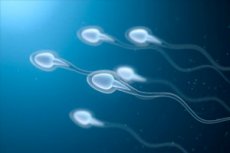
罗马欧洲分子生物学实验室(EMBL)哈克特团队的一项研究发现,破坏雄性小鼠的肠道微生物群会增加其后代患病的风险。
肠道微生物群是栖息于胃肠道的微生物群落。它负责产生酶、代谢物和其他对宿主的新陈代谢和对环境的反应至关重要的分子。
因此,平衡的肠道微生物群对哺乳动物的健康至关重要,有助于调节免疫系统和内分泌系统。这反过来又会影响全身组织的生理机能。然而,人们对肠道微生物群对宿主生殖功能的影响以及父系微生物群改变是否会影响其后代健康的了解甚少。
哈克特在罗马欧洲分子生物学实验室(EMBL)的研究小组与博克和齐默尔曼在海德堡欧洲分子生物学实验室(EMBL)的研究小组合作,着手解答这个问题。他们的研究结果发表在《自然》杂志上,表明破坏雄性小鼠的肠道菌群会增加其后代出生时体重过轻的可能性,并增加过早死亡的风险。
将信息传递给下一代
为了研究肠道菌群对雄性小鼠生殖及其后代的影响,研究人员用不进入血液的常见抗生素治疗雄性小鼠,改变了其肠道菌群的组成。这导致了一种名为“菌群失调”的疾病,即肠道内的微生物生态系统失去平衡。
随后,科学家们分析了睾丸重要代谢物组成的变化。他们发现,雄性小鼠的肠道菌群失调会影响睾丸的生理机能、代谢物组成和激素信号传导。这种影响至少部分是由于诱发肠道菌群失调的雄性小鼠血液和睾丸中关键激素瘦素水平的变化所致。
这些观察结果表明,哺乳动物具有“肠道-生殖轴”,这是肠道、肠道微生物群和生殖系之间的重要纽带。
为了了解这种“肠道-生殖细胞轴”对遗传性的重要性,科学家们将未经治疗或菌群失调的雄性小鼠与未经治疗的雌性小鼠进行交配。菌群失调雄性小鼠的幼崽出生体重明显较低,出生后死亡率较高。不同的抗生素组合,以及使用诱导菌群失调的泻药(也会破坏微生物群)治疗,对后代产生了类似的影响。
重要的是,这种影响是可逆的。一旦停用抗生素,父亲的微生物组就会恢复。当微生物组恢复的小鼠与未经治疗的雌性小鼠交配时,它们的后代出生时体重正常,发育正常。
“我们观察到,在恢复正常微生物组后,代际效应消失了。这意味着,未来的父亲可以预防任何可能导致代际效应的肠道微生物组变化,”参与这项研究的欧洲分子生物学实验室(EMBL)主任皮尔·博克(Peer Bork)说道。
“下一步是详细了解各种环境因素(例如抗生素等药物)如何影响父系生殖系,进而影响胚胎发育。”
论文第一作者、哈克特团队前博士后研究员、现任德国弗莱堡马克斯普朗克免疫学和表观遗传学研究所组长的艾勒·登博巴 (Aile Denboba) 补充道:“这项研究源于一种愿望,即通过将肠道微生物组视为宿主与环境相互作用的桥梁,了解环境对父亲的影响,从而创建一个充分的原因模型来评估复杂生态系统中的代际健康风险。”
父亲对孕期疾病风险的影响
在他们的研究中,哈克特及其同事还发现,在涉及菌群失调雄性的妊娠中,胎盘缺陷(包括血管化不良和生长缓慢)更为常见。缺陷胎盘表现出一种人类常见的妊娠并发症——先兆子痫的迹象,这种疾病会导致后代生长不良,并成为日后多种疾病的风险因素。
“我们的研究表明,哺乳动物的肠道微生物群与生殖系统之间存在着沟通渠道。此外,环境因素会干扰准爸爸的这些信号,从而改变胎盘发育,增加后代健康不良的风险。”该研究项目协调员、欧洲分子生物学实验室罗马研究组组长杰米·哈克特(Jamie Hackett)说道。
“这意味着在小鼠中,受孕前父系环境可以独立于遗传而影响后代的特征。”
“同时,我们发现这种效应只发生在一代人身上,我必须强调,需要更多研究来检验这些效应的普遍性以及它们是否与人类相关。在将小鼠研究结果应用于人类时,需要考虑一些固有的差异。”
哈克特继续说道:“但考虑到西方文化中广泛使用的饮食和抗生素习惯会破坏肠道微生物群,更仔细地研究父亲的代际影响以及他们如何影响妊娠结果和人群的疾病风险非常重要。”

